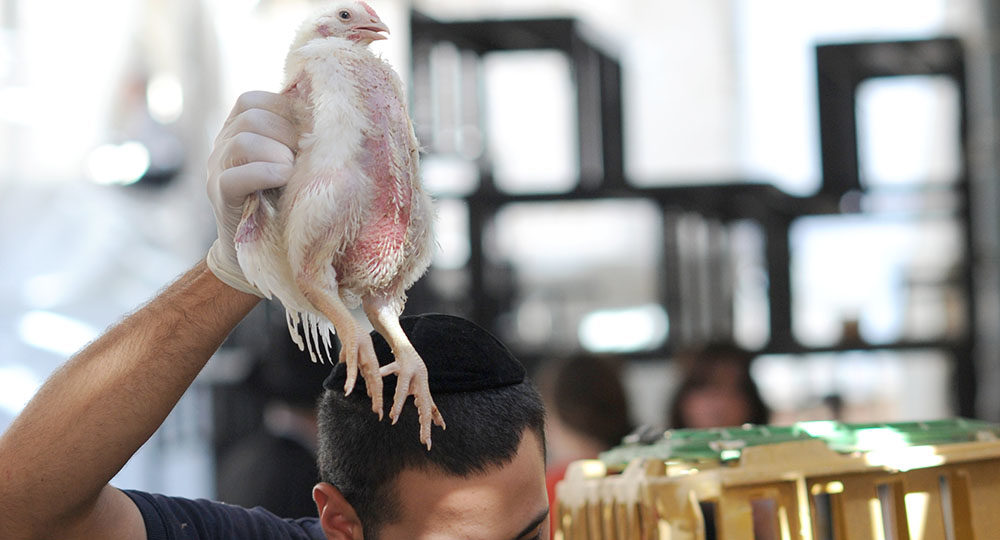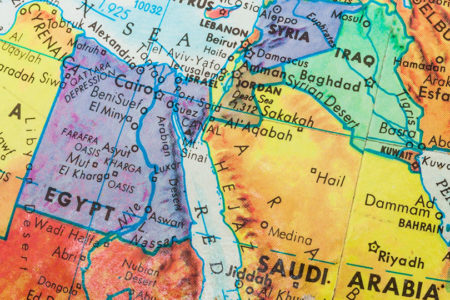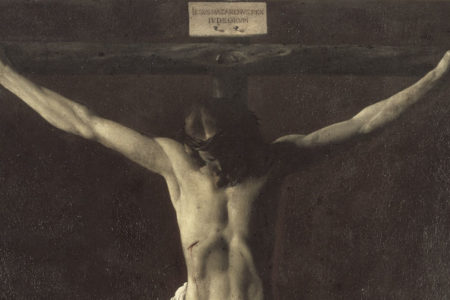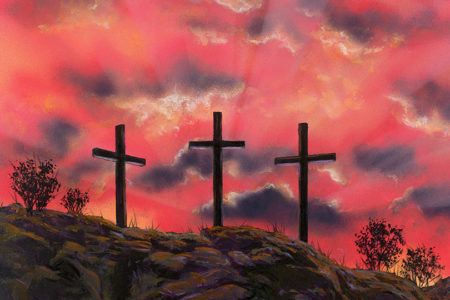A Better Sacrifice
When I was a boy, my grandmother would take me downtown to a butcher who sold live chickens. This was an important trip for her. She took great pains to choose the right bird, even poking her fingers into the cages, because she had a special purpose for this chicken. It would be killed (sacrificed) in a ritual she believed would remove her sins. As do many observant Jews, my grandmother believed the chicken was her kapparot (atonement).
The time of year—fall—was also significant. We always bought the chicken between Rosh Hashanah (New Year) and Yom Kippur (Day of Atonement), during the Ten Days of Awe. Repentance and forgiveness of sin are extremely important to Jewish people during this time, as the chicken ceremony reveals.
While reciting from the Psalms (107:10, 14, 17–21) and Job (33:23–24), an extremely observant individual swings a chicken three times above his or her head. After the Scripture is read, the person says, “This fowl shall be in my stead, shall be my atonement; it shall go to death so that I can attain a good life and peace.”1
The Bible verses used speak of God’s deliverance from the darkness of death. The kapparot ceremony is still observed in Israel, as well as in every city in the world that has a significant Jewish population.
Like my grandmother, Jewish people who observe such traditions believe that nothing but blood can atone for their sin. In fact, it says in the Torah, “For the life of the flesh is in the blood, and I have given it to you upon the altar to make atonement for your souls; for it is the blood that makes atonement for the soul” (Lev. 17:11).
The book of Leviticus is the Older Testament’s worship manual. The words holy, sacrifice, offering, and blood appear often. Specific instructions are given for Rosh Hashanah and Yom Kippur, the high holy days that are considered the most important dates on the Jewish calendar (Lev. 16, 23).
Although most “modern” Jewish people probably shudder at the idea of blood sacrifice, observant Jews still believe the ritual of kapparot makes forgiveness possible. In fact, God’s only method of dealing with sin involves blood. Good deeds do not remove sin today, nor did they do so under Moses.
When Jesus lived on Earth, the Temple still stood in Jerusalem; and Jewish people, in accordance with the Law, brought their sacrifices there. Yet Jewish men like the apostle John, a cousin of Jesus, recognized Jesus as the Lamb of God who took away the sin of the world (Jn. 1:29).
The apostles Peter and Paul, also Jewish, knew that the animals sacrificed had to be spotless and perfect and that Jesus was the final sacrifice, which satisfied God:
You were not redeemed with corruptible things, like silver or gold, from your aimless conduct received by tradition from your fathers, but with the precious blood of Christ, as of a lamb without blemish and without spot (1 Pet. 1:18–19).
It was Jesus, wrote Paul, “whom God set forth as a propitiation [satisfaction] by his blood” (Rom. 3:25). “In Him we have redemption through His blood, the forgiveness of sins, according to the riches of his grace” (Eph. 1:7).
For Jewish people in that day to come to grips with the change from an imperfect, yearly sacrifice to a perfect, one-time sacrifice took time. The writer of Hebrews put it this way: “For it is not possible that the blood of bulls and goats could take away sins. For by one offering He has perfected forever those who are being sanctified” (Heb. 10:4, 14).
Jesus’ blood was not magical; its physical composition was not unusual. But there was something unusual, unique, and holy about the person of Jesus. He was the God-man, born without sin, who lived a pure, sinless, and spotless life. For that reason, His shed blood satisfied forever a holy and righteous God. His shed blood was a once-and-for-all offering for your sin and mine. Those of us who have accepted this spiritual truth by faith can gratefully and joyfully sing of His sacrifice with these wonderful words of hymn writer William Cowper:
There is a fountain filled with blood
Drawn from Immanuel’s veins;
And sinners, plunged beneath that flood,
Lose all their guilty stains.
Another wonderful hymn goes like this: “What can wash away my sin? Nothing but the blood of Jesus.”
Some people today shy away from preaching and teaching about the blood. But were it not for the blood of the Lamb, we might all be swinging chickens over our heads in vain. Are you washed in the blood of the Lamb?
ENDNOTE
- “Kapparot (Atonement) Ceremony,” Jewish Heritage Online Magazine <Jhom.com/calendar/tishrei/kapparot.html Kapparot>.







